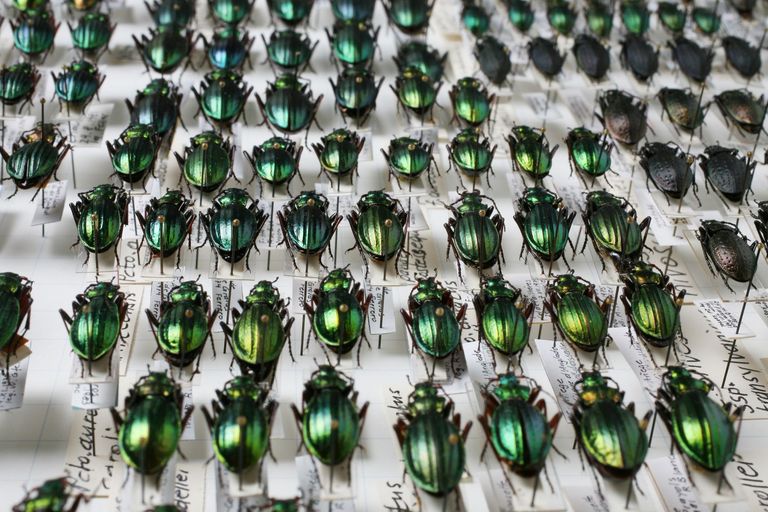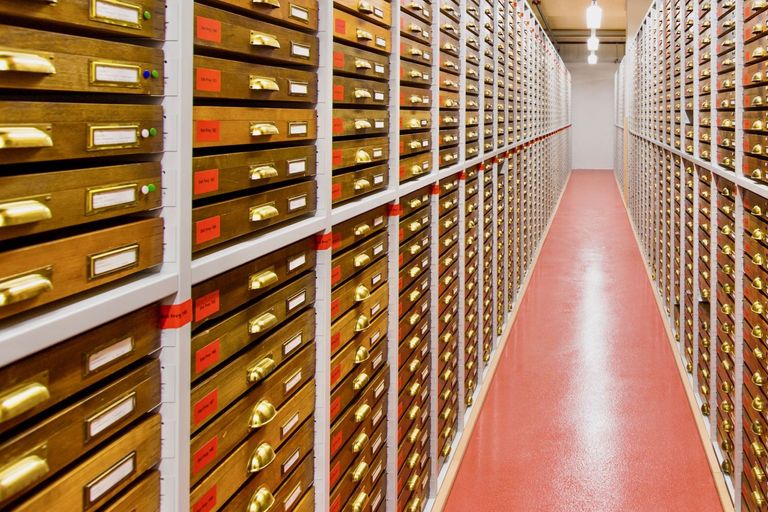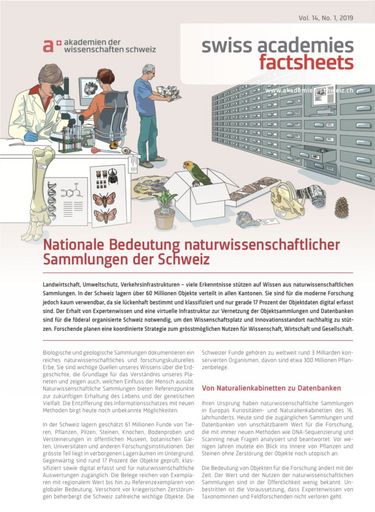Related topics
Handbook on natural history collections management
Written by and for persons curating, preparing or managing natural history collections, this handbook intends to make existing knowledge easily available and transferable. It gathers specific actions relevant for the conservation of natural history objects, the coordinated digitisation of associated data and the development of a modern digital infrastructure. This handbook should facilitate the long-term utilisation of Swiss natural history collections data for science and society.
Image: Swiss Academy of Sciences (SCNAT) • Platform BiologyThe Confederation supports SwissCollNet and its digital platform of natural science collections for research
The federal government is promoting an improved access to natural science collections with a total amount of CHF 12.37 million until 2024. The digitised collections provide unique data for climate, biodiversity or agricultural research, for example. To this end, the Swiss Academy of Sciences (SCNAT) has launched the Swiss Natural History Collections Network, SwissCollNet, to collaborate with museums, universities, and botanical gardens in laying the foundations for the digitisation and long-term management and use of the collections.
Image: ETHZ-BIB/Pierre Kellenberger
Wissenschaft zeigen (2): Naturwissenschaftliche Sammlungen für die Forschung – eine Nationale Initiative
Landwirtschaft, Artenschutz, Verkehrsinfrastrukturen – viele Erkenntnisse basieren auf Wissen aus naturwissenschaftlichen Sammlungen. In der Schweiz lagern über 60 Millionen Objekte verteilt in allen Kantonen – ein unschätzbarer Wert für die Wissenschaft.
Image: © Plattform Biologie
Schweiz nutzt naturwissenschaftliche Sammlungen schlecht
Die Schweiz nutzt ihre mit über 60 Millionen Objekten umfangreichen naturwissenschaftlichen Sammlungen schlecht. Gegenwärtig sind nur 17 Prozent der Objekte digital erfasst und damit für wissenschaftliche Auswertungen wirklich zugänglich. Dies zeigt der Bericht «Nationale Bedeutung Naturwissenschaftlicher Sammlungen der Schweiz» der Akademie der Naturwissenschaften (SCNAT). Demnach braucht es einen Investitionsschub, damit Sammlungen eine effiziente Forschungsinfrastruktur werden.
Image: Naturhistorisches Museum Basel
Nationale Bedeutung naturwissenschaftlicher Sammlungen der Schweiz
Landwirtschaft, Umweltschutz, Verkehrsinfrastrukturen – viele Erkenntnisse stützen auf Wissen aus naturwissenschaftlichen Sammlungen. In der Schweiz lagern über 60 Millionen Objekte verteilt in allen Kantonen. Sie sind für die moderne Forschung jedoch kaum verwendbar, da sie lückenhaft bestimmt und klassifiziert und nur gerade 17 Prozent der Objektdaten digital erfasst sind. Der Erhalt von Expertenwissen und eine virtuelle Infrastruktur zur Vernetzung der Objektsammlungen und Datenbanken sind für die föderal organisierte Schweiz notwendig, um den Wissenschaftsplatz und Innovationsstandort nachhaltig zu stützen. Forschende planen eine koordinierte Strategie zum grösstmöglichen Nutzen für Wissenschaft, Wirtschaft und Gesellschaft.

